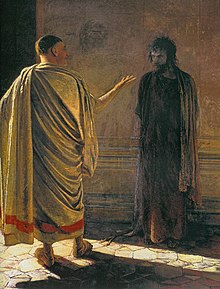For my eleventh birthday my dad took me to
the movies. Like all good American dad and son combinations, we went to see a
Western double feature: Rio Lobo with
John Wayne, and Monte Walsh with Lee
Marvin and Jack Palance. I loved the John Wayne flick, but I was a little too
young to really appreciate Monte Walsh,
a film about two cowboys facing the end of an era when trail hands were
employable. I saw the picture on TV years later, and I found it touchingly
tragic. I recall one scene in which Palance’s character tells Marvin, “It’s
over, Monte. Nobody gets to be a cowboy forever.” As I look back on that eleventh
birthday outing, I wonder what my dad must’ve felt like watching a movie about
the death of an industry. At the time, he himself was facing an industry-wide
layoff.
This past week General Motors announced
that it would be closing several plants and laying off about 14,000 workers.
Just as railroad spurs and barbed–wire fences eliminated the need for cowboys
in 1900, so automation and consumer demand for different types of vehicles are
eliminating the need for many auto workers. The world is changing, and you have
to wonder just what the future will look like. Is there a whole way of life
which is vanishing and won’t come back? I’ve seen a prediction that China might
well become the world’s leading economy by 2030[i]. Is the “American Century”
over? Are we witnessing the end of something we hoped was eternal?
Even more startling than the economic news
is the way the physical world seems to be changing. There is “on earth distress
among the nations confused by the roaring of the sea and the waves” as global
climate change causes more destructive weather events from hurricanes to droughts
to rising sea levels. Will the roaring waves cover half of Florida in my
lifetime, do you think?
And what about the Church? We keep hearing
that more and more Americans do not identify with any religion at all. When I
came to Philly in 1994, there were 60 ELCA congregations within the city
limits. There are fewer than 30 today. The 5 million member ELCA has shrunk to
about 3.5 million in the same time period. Sometimes I wonder if I’m going the way of the cowboy. Am I
becoming an anachronism?
In the gospel lesson for Advent 1 Year C
(Luke 21:25-36) Jesus warns the disciples about the changes to come.
Previously in the chapter (verses 5 – 24) he’s prophesied the destruction of
Jerusalem, the dissolution of the Jewish state by the Gentiles, and the
persecution which his followers will face. In these verses he warns of a cosmic
change which will be seen in the very moon and stars. “The powers of the heavens
will be shaken,” he says. And he says it like it’s supposed to be a good thing!
I don’t know about you, but when I look at
the way things are these days, I can’t help but think that, if Jesus means to
return in a cloud with great power and glory, NOW would be a pretty good time
for him to do it!
I’m scared of the time to come just as
much as the next guy, I guess. But Jesus promises us that when we see the signs
of change, it means that the Kingdom of God is near (v. 31). He assures us that
his words will not pass away, and that the moment of change is the moment when
we need to raise our heads—whether we want to or not. In verses 34-5 he warns
us against avoidance. We can’t just pretend that things aren’t changing. We can’t
just get stoned and laugh it off or busy ourselves with the minutia of daily
life and fool ourselves into believing that hard choices won’t have to be made.
I mean, haven’t we all seen people who just give up? They can’t deal with the
loss, so they just shut themselves away and wait to die. We’ve also seen
churches in which the congregations still think it’s 1960, still do things the
same old way, and slip peacefully beneath the waves with their last breath
gasping, “Where are the young people?”
No. Jesus is asking us to face the
tribulations head on. He is asking us to be in prayer for strength (v. 36). I don’t really believe (and I hope I’m not wrong
about this) that the future years will see mass destruction and a return to the
Stone Age. I hope our prayer for strength won’t be for the strength to survive cataclysm
and the breakdown of civilization. Granted, for victims of flooding in Georgia and
Florida or victims of wildfires in California, the prayer for strength really is a prayer for survival. For the rest
of us, however, it will be a prayer for faith in the face of things which are
vastly different than we thought or hoped they’d be.
If we don’t see Heaven open and Jesus descending
with the angelic host, we’ll have to start looking for him and his kingdom in
other ways. We’ll still need to pray the great Advent prayer, “Come Lord Jesus!”
We’ll still need to believe that our desperation is God’s opportunity. We’ll
pray with faith and confidence for a new way to be the church, a new way to be
society, a new way to treat our planet, new people to love, new ways to serve,
and new ways to experience the loving, forgiving, healing form of Jesus in our
lives, our work, and our relationships.
Amen. Come, Lord Jesus.
